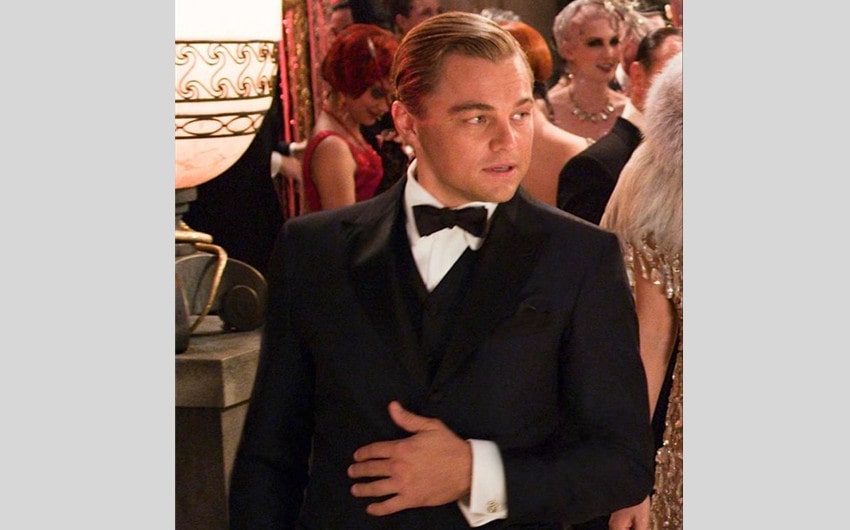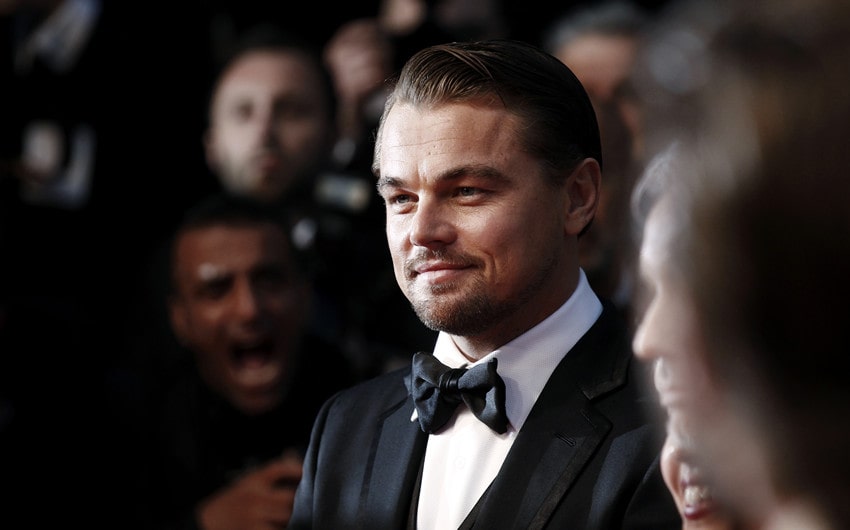13 Iconic The Great Gatsby Quotes About Money
F. Scott Fitzgerald’s The Great Gatsby is a timeless exploration of wealth, power, and societal divides. Central to the novel are the ways money shapes relationships, ambitions, and morality. Through powerful quotes, Fitzgerald critiques the American Dream and exposes the consequences of materialism. This article delves into 10 memorable The Great Gatsby quotes about money to uncover their deeper meanings and relevance.
The Great Gatsby Quotes About Money
1. “Her voice is full of money.”

Image source: Pinterest
Gatsby’s observation about Daisy’s voice being “full of money” highlights his perception of wealth as the essence of her charm. This comment is made during a conversation with Nick, where Gatsby expresses his deep infatuation with Daisy, intertwining her allure with material wealth.
To Gatsby, Daisy is the epitome of sophistication and luxury, a symbol of the life he has tirelessly pursued. The metaphor illustrates that Daisy’s appeal is inseparable from her association with privilege and status, reinforcing Gatsby’s belief that wealth can bring him closer to her.
This moment underscores a central theme of the novel: the corrupting influence of money on relationships. Gatsby’s fixation on Daisy, driven by his idealization of her as an object of wealth and beauty, reveals his distorted understanding of love and happiness.
2. “They were careless people, Tom and Daisy—they smashed up things and creatures and then retreated back into their money or their vast carelessness.”
This quote, delivered by Nick at the end of the novel, reflects on the destructive and irresponsible nature of Tom and Daisy Buchanan. After causing chaos and heartbreak, including Gatsby’s death, they escape the consequences of their actions by retreating into their wealth.
Their privilege allows them to act recklessly, knowing their money will shield them from accountability. Nick’s observation critiques the moral decay of the wealthy elite, portraying them as self-centered and detached from the realities of their actions.
This moment highlights a key theme of the novel: the disparity between social classes and the lack of accountability for the rich. Fitzgerald uses Tom and Daisy to symbolize the carelessness of those who prioritize wealth and status over morality.
3. “Rich girls don’t marry poor boys.”
Though not directly stated by Daisy, this sentiment underscores the social and financial barriers that define relationships in the novel. It reflects the rigid class structures of the time, where wealth determines who is deemed acceptable as a partner.
This line reveals the root of Gatsby’s relentless pursuit of wealth: he believes that becoming rich is the only way to win Daisy’s love and approval. The quote underscores the theme of how money dictates social and romantic possibilities, while also illustrating the futility of Gatsby’s dream.
4. “He had come a long way to this blue lawn, and his dream must have seemed so close that he could hardly fail to grasp it.”
This quote captures Gatsby’s belief that wealth brings him closer to achieving his dreams, especially his romanticized vision of a life with Daisy. The “blue lawn” symbolizes the world of the rich that Gatsby has worked so hard to enter.
However, despite his vast fortune, he remains an outsider, suggesting that money alone cannot grant access to true belonging or fulfillment. This moment critiques the American Dream by showing how the pursuit of wealth often leads to disillusionment rather than satisfaction.
5. “I’m sorry about the clock.”

Image source: Pinterest
While not overtly about money, this quote, spoken by Gatsby during his reunion with Daisy, symbolizes his futile attempt to control time and relive the past. Gatsby’s obsession with recreating his earlier romance with Daisy is deeply tied to his wealth, which he believes can erase the years and rekindle their love.
This moment reflects his ultimate misunderstanding: money cannot buy time, nor can it repair what has been lost. It subtly critiques the idea that material wealth can solve deeper, emotional issues.
6. “I suppose the latest thing is to sit back and let Mr. Nobody from Nowhere make love to your wife.”
Tom Buchanan’s condescending remark during a confrontation with Gatsby exposes his disdain for Gatsby’s social background. Despite Gatsby’s wealth, Tom belittles him as an outsider who does not belong to the world of “old money.”
This quote reveals the rigid class distinctions that define the social dynamics in the novel, where wealth alone is insufficient to gain acceptance among the established elite. Tom’s insult also highlights his hypocrisy, as he criticizes Gatsby’s pursuit of Daisy while ignoring his own extramarital affairs.
This moment underscores a central theme of the novel: the limitations of wealth in overcoming entrenched social hierarchies. Through Tom’s arrogance, Fitzgerald critiques the superficiality and exclusivity of the upper class.
7. “He’s a bootlegger,” said the young ladies, moving somewhere between his cocktails and his flowers.
This remark reflects the speculation surrounding Gatsby’s wealth and its questionable origins. The term “bootlegger” directly ties Gatsby’s fortune to illegal activities during Prohibition, showing that his riches are not inherited or legitimate by the standards of the upper class.
This statement illustrates the judgment Gatsby faces despite his financial success, highlighting the novel’s theme of the limitations of “new money.” Even with his immense wealth, Gatsby cannot achieve the social acceptance he craves, as those with “old money” view him as an outsider.
8. “It makes me sad because I’ve never seen such—such beautiful shirts before.”
Daisy’s reaction to Gatsby’s collection of luxurious shirts underscores her materialistic nature and her fixation on wealth. Her emotional response reveals how deeply she equates beauty, value, and sentiment with material possessions.
This moment also signifies Gatsby’s attempt to use his wealth to win Daisy’s affection by showcasing the life of opulence he can provide. However, Daisy’s superficial focus on the shirts highlights the emptiness of Gatsby’s dream, as her reaction is tied to his possessions rather than any genuine emotional connection.
9. “My house looks well, doesn’t it? See how the whole front of it catches the light.”

Image source: Pinterest
Gatsby’s pride in his mansion reflects his belief that wealth and material possessions can validate his social standing and make him worthy of Daisy. The way Gatsby draws attention to his home’s grandeur symbolizes his need to display his success outwardly, as if proving himself to society and to Daisy.
This statement highlights the superficiality of his pursuit of wealth, as he sees material goods as the ultimate expression of his value. The quote ties into the broader critique of the American Dream, showing how its focus on outward success often ignores deeper fulfillment.
10. “This is a valley of ashes—a fantastic farm where ashes grow like wheat into ridges and hills and grotesque gardens.”
This description of the Valley of Ashes serves as a metaphor for the cost of wealth and the stark divide between the rich and the poor. The imagery of a desolate wasteland represents the lives of those who labor in misery to sustain the luxury of the upper class.
The Valley of Ashes stands in stark contrast to the glittering opulence of Gatsby’s mansion and the Buchanans’ estate, symbolizing the moral and economic decay hidden beneath the surface of wealth. It critiques the inequality inherent in the pursuit of material success.
11. “He took out a pile of shirts and began throwing them, one by one, before us, shirts of sheer linen and thick silk and fine flannel.”
Gatsby’s act of displaying his extravagant collection of imported shirts is a symbolic gesture meant to impress Daisy and demonstrate the extent of his wealth. This moment reflects Gatsby’s belief that material possessions can bridge the gap between their social worlds and rekindle their love.
However, the scene also highlights the futility of Gatsby’s efforts, as his focus on material wealth cannot compensate for the emotional and social barriers between him and Daisy. The shirts symbolize Gatsby’s desire to prove his success, but they also underscore the emptiness of his materialistic pursuits.
12. “You’re worth the whole damn bunch put together.”
This line, spoken by Nick to Gatsby, is one of the few times Nick openly praises Gatsby, despite his earlier criticisms of him. While it doesn’t explicitly reference money, the quote contrasts Gatsby’s moral character with the Buchanans and their circle, who represent the corrupted and careless nature of “old money.”
Nick acknowledges that, despite Gatsby’s questionable methods of acquiring his fortune, he possesses a sense of hope, ambition, and loyalty that sets him apart. This statement highlights one of the novel’s central ideas: wealth alone does not define a person’s worth or integrity.
In Nick’s eyes, Gatsby, with all his flaws, remains more admirable than the morally bankrupt elite who use their inherited money as a shield for their selfishness.
13. “He had a big future before him, you know. He was going to fix everything just the way it was before.”
This quote reflects Gatsby’s unwavering belief that wealth and determination can rewrite the past and secure his dreams. It encapsulates his ambition and the romanticized idealism that drive his pursuit of Daisy and success. The phrase “fix everything” shows Gatsby’s refusal to accept the irreversibility of time, as he believes his wealth grants him the power to recreate a perfect version of his past.
This moment also reveals the futility of Gatsby’s dreams, as his vision of the future is based on an illusion. The quote underscores the novel’s critique of the American Dream, illustrating how the pursuit of material success often leads to disillusionment rather than fulfillment.






